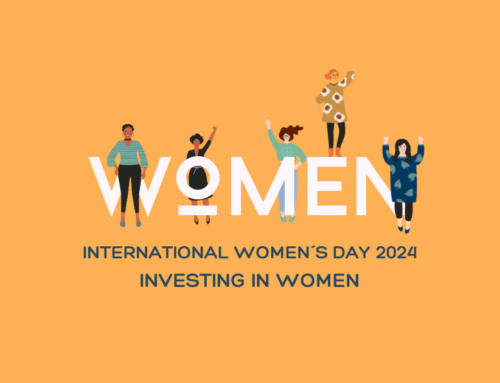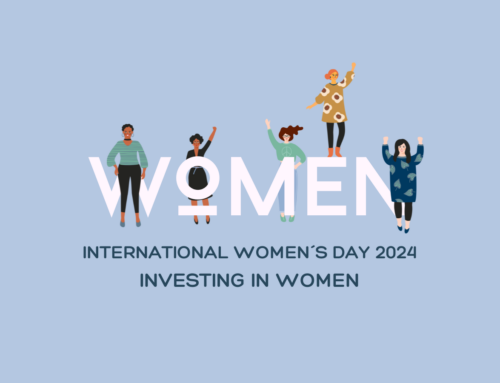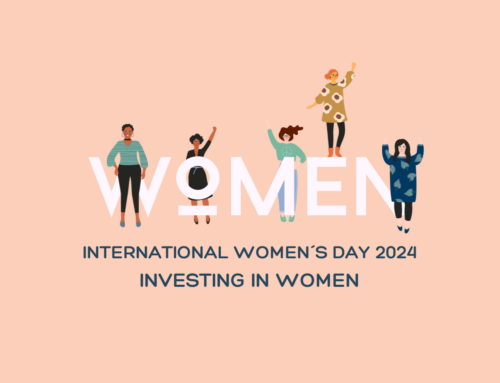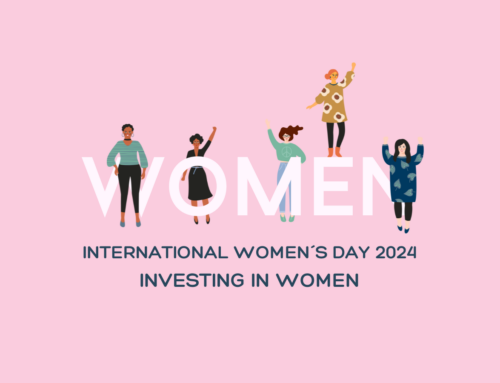LWG Interview with new League of Women in Government President & Aiken County, SC Assistant County Administrator, Ashley Jacobs
By LWG Editor
Recently, we talked with Ashley Jacobs, Assistant County Administrator – Aiken County, SC and newly elected President of the League of Women in Government. Ashley shared her thoughts on what’s needed in organizations to support women and parents, the importance of gender balance and pay equity, and the meaning of a rising tide. Here is the interview:
What inspired you to select a career in public service?
I grew up in beautiful Aiken, SC, and we had a beloved city manager, Roland Windham, who was the city manager for twenty-eight years, from 1963 to 1991. His wife and my mother were friends, so I often heard stories about him and what he was doing to fix problems around the city, or make things better, and it was fascinating to me that his job was to improve the community and ensure that it operated properly. I’ve always been interested in how government functions, and how it can be beneficial in people’s lives. Working in local government, and building communities that are economically vibrant, healthy, safe, and efficient gives me a tremendous sense of purpose and accomplishment.
Tell us about your career path — where you’ve been and if you had mentors or advocates that helped you along the way.
When I was in graduate school at the University of South Carolina, I worked as a planner at the Central Midlands Council of Governments, a metropolitan planning agency. Then I worked for Richland County for five years, at Dorchester County for nine years, and now I’m at Aiken County. I also served as Executive Director of a Community Development Office and an arts alliance. My twenty years of experience have primarily been as an assistant county administrator.
My first mentor was Cary McSwain, the County Administrator at Richland County. He gave me several important projects to manage, which built my confidence and portfolio. He also gave me broad authority and autonomy, which allowed me to grow and learn from mistakes. Cary continues to be a great friend and trusted advisor.
I was also very lucky to meet many incredible women on the ICMA Task Force on Women in the Local Government Profession who were influential in my development. All of those women, including Pamela Antil, Tammy Letourneau, Kimiko Gilmore, Sarah Medary, Anne Marie Guara, Mary Jacobs, and Bonnie Svrcek completely transformed my experience as a member of the profession. Their confidence, accomplishments, leadership philosophies, “get it done” mentality, and energy are constantly inspiring. I feel rejuvenated and ready to take on the world after talking with them. Ted Staton, also from the task force, has been another fantastic mentor. He has the best style and is so great at challenging my perspective.
My employees have always been incredible mentors, especially those who teach me about their respective fields and help me understand what’s needed for front line employees, how employees experience the culture, and how management decisions are perceived. Their input is extremely valuable because it’s important to me that the manager’s office isn’t an “ivory tower” that’s disconnected from the departments.
What got you involved in the local government “women’s movement?”
I observed and personally experienced gender bias, sexual harassment, and pay inequity in the workplace, and was determined to do something about it, so I started talking with other women from the local government community about how we could work together to address these problems.
Why do you think gender balance and pay equity is important? If local government is running well, why should communities care who is in the CAO spot?
Gender balance is important because women aren’t proportionately represented in management positions. Women are half of the employee population, and in local government, women are 60 to 70% of the MPA student population, and about 40 percent of assistant CAO positions are held by women, but less than 20% of CAO positions are held by women. That means that women who are fully qualified, who have the requisite education and experience, aren’t reaching their full potential. It also means that women’s perspectives are inadequately represented when it comes to strategic planning and day to day operations. Think about how different your city or county would be if more women made decisions. Pay equity is important because it’s unfair and unethical to pay someone less simply because of their gender. For professional women, lower pay results in less income for investment and retirement purposes, and less financial security. For blue collar women, lower pay has more dire consequences such as poverty and food and housing insecurity. Because women are primary caregivers, this also results in food and housing insecurity for children.
Recently you were elected President of the League of Women in Government. What do you hope to achieve during your presidency?
Even though our members don’t pay dues, I want them to feel that LWG membership is valuable and beneficial. One of my goals is to create and distribute easily accessible resources that will train women to be more risk tolerant when it comes to applying for the CAO position, to feel prepared for an interview, and to believe in their own ability to serve as a city or county manager. I talk with many women who struggle with imposter syndrome or feel like they aren’t ready to deal with all aspects of being CAO, particularly the politics. Another major goal is to implement annual training for elected officials in all states to bring about awareness on the issue of gender balance, and the benefits of hiring women. The people who are doing the hiring should be educated that cities like Las Vegas and San Antonio have been successfully managed by women for years, and that they’re missing out on talented leaders with unique skillsets if they don’t have hire women. This has been and will continue to be part of the League Board’s mission and was reconfirmed during our Board retreat in February.
You mentioned the League’s recent Board Retreat, what exciting things can we expect to see coming from the league that advances the group’s mission?
We have a phenomenal symposium planned for September 22, 2018 in Baltimore before the start of the ICMA annual conference, and I think both men and women will really enjoy our two speakers. Our keynote speaker is Joanne Lipman, bestselling author of That’s What She Said: What Men Need to Know (And Women Need to Tell Them) About Working Together, and former Editor-in-Chief of USA Today. She has a great message about how we can create supportive, highly functional workplaces that help both men and women succeed.
We also have a fabulous opening speaker, Fran Mainella, the first female Director of the National Park Service. She was Director during 9/11 and she’s going to share her experience managing a male dominated field during that time of crisis in our country, as well as how men and women can routinely work together productively.
Both Joanne and Fran are so dynamic and personable, it’s going to be a fun event, and some great ideas will be discussed that we can all take home and implement. We’re also developing partnerships with other organizations so that we can be intersectional and support all groups that enable women, and through these collaborations, we’ll be able to provide meaningful content and training that will help women succeed with interviewing, salary negotiation, and managing gender bias that they encounter in their jobs.
What can organizations do to support women as they move throughout their careers in local government?
Our cities and counties need to be parent friendly. Yes, everyone has big jobs with lots of responsibility, but I think we all know that the most important job we have is the one caring for and raising other human beings. Parenthood is a fact of life for most people, so why don’t we provide supportive benefits instead of punishments? Provide an appropriate lactation room for nursing mothers. Provide on-site child care. Provide paid maternity and paternity leave. Many times, when I have conversations about offering these kinds of things, the response is, “Oh, we aren’t progressive enough for all that.” But these aren’t radical ideas, they’re things that should be standard and expected. Women are treated like they’re sick when they’re on maternity leave, but they aren’t sick, they’ve just had a baby.
Other things organizations can do are to provide gender bias training for those who make hiring decisions, have a zero-tolerance policy for harassment, and establish a culture that’s inclusive of women, not a “frat house” mentality where the men socialize separately from the women, and have private games of darts, golf, basketball, etc. Provide equal pay. Ensure that both men and women serve on interview panels, and that women are involved in decision-making. Provide equal opportunities for women to take on large, high profile projects and departments. Allow women to have regular and equal travel and training opportunities. Have an action plan related to the recruitment, retainment, and development of women for leadership positions, including a mentoring program. City/county management organizations can also contribute to the success of women by hosting social events at conferences that are gender neutral, rather than something like a golf tournament, and encouraging women to run for board positions.
What advice do you have to give to young women just beginning their careers in local government?
Go after the top job as soon as possible, and never doubt your own capability. Obtain experience in financial management, budget preparation and implementation, project management, construction management, technology, and water and sewer operations. Learn as much as you can wherever you are, because that knowledge will always be useful in the future. Attend professional development opportunities provided by ICMA, League of Women in Government, other women’s groups, and municipal/state organizations. It’s important to build your network and establish your reputation as a professional. And finally, look out for and lift up other women. It’s the right thing to do, and don’t forget that a rising tide lifts all boats. Every time a woman becomes the first female to do something, every time a woman is successful in landing a CAO job, every time a woman earns a fair salary, it helps all women, it helps our economy, and it makes us a more just and equal society.
_______________________________
Ashley Jacobs has worked as a local government executive in South Carolina since 2001. She is currently Assistant County Administrator for Aiken County, SC and the current President of the League of Women in Government. She served on the ICMA Task Force on Women in the Local Government Profession in 2012, and founded the South Carolina Chapter of League of Women in Government in 2015. She is a graduate of the Leadership South Carolina Class of 2010, the SCAC Institute of Government for Public Officials, and the South Carolina Economic Development Institute. She is a Trustee for the South Carolina State Firefighters Foundation, a Board Member for League of Women in Government, and a member of ICMA, ELGL and the South Carolina City/County Management Association. Jacobs earned a BA from Clemson University and a MPA from the University of South Carolina.







